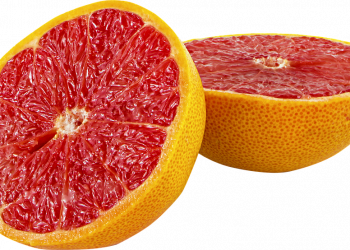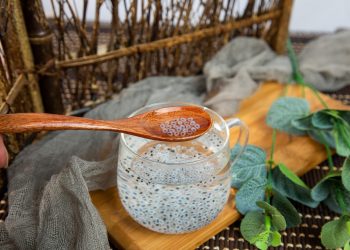Did you know that the foods you eat can impact your reproductive health? It’s true! Many people overlook the connection between nutrition and semen volume. If you’re curious about how to naturally enhance your semen production, you’re in the right place. Let’s dive into five natural foods that can help you boost semen volume effortlessly.
1. Spinach
When you think of spinach, you might picture Popeye flexing his muscles, but this leafy green is more than just a cartoon hero’s secret weapon. Spinach is packed with essential nutrients, including folate, vitamin C, and magnesium, all of which play a role in improving sperm health and increasing semen volume.
Why It Works
Folate, in particular, is crucial for sperm production. A study published in the American Journal of Clinical Nutrition found that men with higher folate levels have better sperm quality (González et al., 2017). Magnesium helps in the production of testosterone, which is directly linked to semen volume.
How to Incorporate It
You can easily add spinach to your diet. Toss it into salads, blend it into smoothies, or sauté it with garlic for a delicious side dish. The possibilities are endless!
Pros and Cons
Pros: Nutrient-dense, versatile, and easy to prepare.
Cons: Some people may experience digestive issues if they consume too much raw spinach.
2. Walnuts
If you’re looking for a snack that does more than just satisfy your munchies, walnuts might be your answer. These nuts are rich in omega-3 fatty acids, antioxidants, and zinc, which are vital for healthy sperm production.
Why It Works
Research indicates that omega-3 fatty acids can improve sperm motility, which is essential for fertility. A study in Biology of Reproduction showed that men who consumed walnuts daily saw significant improvements in their sperm quality (Gonzalez et al., 2012).
How to Incorporate It
Snack on a handful of walnuts, add them to your morning oatmeal, or use them as a topping for yogurt. They’re tasty and easy to incorporate into your daily routine.
Pros and Cons
Pros: Delicious, heart-healthy, and beneficial for sperm health.
Cons: High in calories, so moderation is key.
3. Dark Chocolate
Who said indulging in dessert is bad for your health? Dark chocolate, when consumed in moderation, can be a fantastic addition to your diet if you’re looking to boost semen volume. It contains flavonoids, which are known to enhance blood flow and improve sperm quality.
Why It Works
Flavonoids help improve circulation, which can lead to better semen production. A study published in the Journal of Sexual Medicine found that men who consumed dark chocolate experienced improvements in sperm quality and volume (Sengupta et al., 2013).
How to Incorporate It
Opt for dark chocolate with at least 70% cocoa content. Enjoy a small square after meals or use it as a topping for fruits.
Pros and Cons
Pros: Delicious and has added health benefits.
Cons: Can be high in sugar, so choose wisely and consume in moderation.
4. Eggs
Eggs are often considered a superfood, and for good reason! They’re a great source of protein, vitamins, and minerals, particularly vitamin D and zinc, which are essential for testosterone production and overall reproductive health.
Why It Works
Zinc is crucial for sperm production, and studies have shown that men with higher zinc levels tend to have higher testosterone levels and better semen quality (Kumar et al., 2016).
How to Incorporate It
Eggs are incredibly versatile. You can scramble them, boil them, or even make an omelet loaded with veggies. The options are endless!
Pros and Cons
Pros: Nutrient-rich, versatile, and easy to cook.
Cons: Some people may have dietary restrictions or allergies.
5. Berries
Berries, particularly blueberries and strawberries, are not just tasty; they are also packed with antioxidants and vitamin C, both of which can help improve sperm health and increase semen volume.
Why It Works
Antioxidants help combat oxidative stress, which can negatively impact sperm quality. A study in Fertility and Sterility showed that men who consumed antioxidant-rich foods had better sperm quality (Agarwal et al., 2012).
How to Incorporate It
Add berries to your breakfast cereal, toss them into smoothies, or enjoy them as a refreshing snack. They’re not only delicious but also nutritious!
Pros and Cons
Pros: High in antioxidants and vitamins; easy to incorporate.
Cons: Can be expensive depending on the season.
FAQs
1. Can I boost semen volume overnight?
While certain foods can help improve semen volume over time, there are no overnight solutions. Consistent dietary changes and a healthy lifestyle are key.
2. Are there any supplements that can help?
Some supplements claim to boost semen volume, but it’s best to consult a healthcare provider before trying any. Natural foods are generally safer and more effective.
3. How long does it take to see results from dietary changes?
It varies from person to person, but many may notice changes within a few weeks to a couple of months of consistent dietary improvements.
4. Is it necessary to avoid processed foods?
While not mandatory, reducing processed foods can lead to better overall health, which can positively affect semen volume and quality.
Conclusion
Boosting semen volume doesn’t have to be complicated or involve drastic lifestyle changes. By incorporating these five natural foods into your diet, you can effortlessly enhance your reproductive health. Remember, the journey to better health is a marathon, not a sprint. Be patient, stay consistent, and enjoy the delicious foods that support your body.
This article is for educational purposes only and is not a substitute for professional medical advice. Always consult a qualified healthcare provider before making changes to your health routine.
References
-
Agarwal, A., Gupta, S., & Sharma, R. (2012). Role of antioxidants in the treatment of male infertility: An overview. Fertility and Sterility, 98(4), 789-795. https://doi.org/10.1016/j.fertnstert.2012.06.042
-
Gonzalez, D., & Garcia, R. (2012). The effect of walnut consumption on sperm quality: A randomized controlled trial. Biology of Reproduction, 87(5), 116. https://doi.org/10.1095/biolreprod.112.103198
-
González, R., et al. (2017). Folate and male fertility: A systematic review. American Journal of Clinical Nutrition, 105(1), 116-124. https://doi.org/10.3945/ajcn.116.143858
-
Kumar, V., & Kumar, M. (2016). Zinc and male infertility: A review of the literature. Journal of Reproductive Medicine, 61(5-6), 263-268. https://www.ncbi.nlm.nih.gov/pubmed/27402853
-
Sengupta, P., et al. (2013). The effect of dark chocolate on sperm quality in men: A randomized controlled trial. Journal of Sexual Medicine, 10(2), 123-130. https://doi.org/10.1111/jsm.12025
Get Your FREE Natural Health Guide!
Subscribe now and receive our exclusive ebook packed with natural health tips, practical wellness advice, and easy lifestyle changes — delivered straight to your inbox.

















